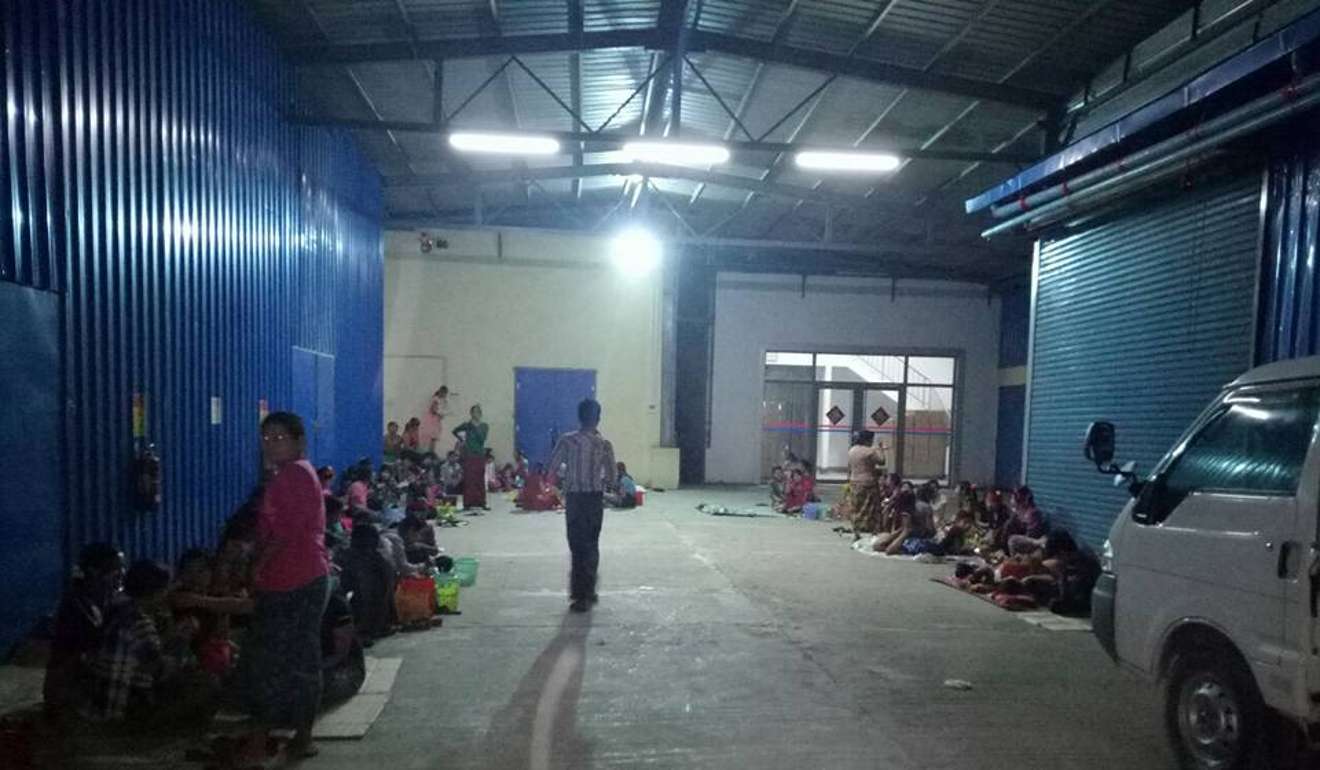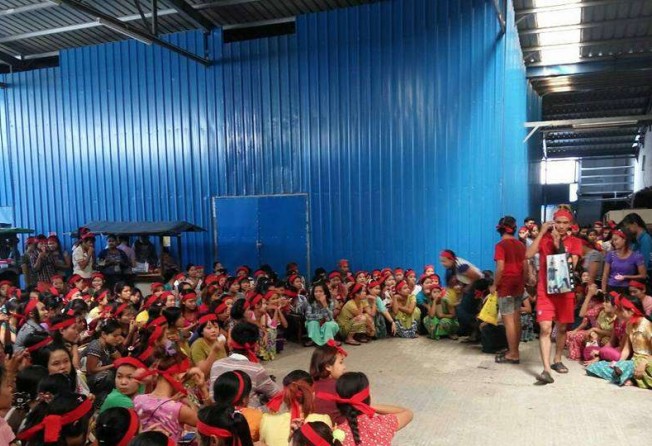
Strike at Chinese factory in Myanmar another bump along ‘One Road’

It took three weeks but a strike at a Chinese clothing factory in Myanmar finally ended last month with the company agreeing to workers’ demands.
Hangzhou Hundred-Tex Garment, which makes clothes in Yangon for Swedish retailer H&M, agreed to pay the daily minimum wage of 3,600 kyat (US$2.70), uphold labour laws on overtime and rehire a previously fired labour union president, according a union official.
The company set up the Yangon factory three years ago to try to take advantage of lower labour costs. The minimum monthly wage in Hangzhou, the company’s former production base, is 1,860 yuan (US$269), or more than three times the rate in Yangon.
But the strike took its toll on the business and highlighted the risks of Chinese offshore investment just as Beijing is trying to expand the country’s commercial ties abroad.
During the strike, Myanmese workers smashed factory doors and windows, and several Chinese managers were trapped in the building. They were later freed with help from the Chinese embassy, according to a statement on the embassy’s website.
Chinese media and local Chinese-language news outlet Golden Phoenix reported that seven Chinese staff were detained, robbed and beaten when nearly 300 people ransacked the factory.
But Khaing Zar, an executive committee member of the Confederation of Trade Unions Myanmar, who helped negotiate the deal, said none of the Chinese staff were wounded and all remained in the factory of their own volition.
“Windows and plastic chairs in the canteen were damaged by the striking workers, but no machines were destroyed,” she said.
Khaing Zar said the workers had been upset at the Chinese company’s failure to uphold local labour laws, but only went on strike in January after the factory fired the workers’ union president.
She said the factory took a hardline response to their demands, until H&M representatives and local authorities became involved in the discussions.

H&M, the factory’s sole client, said it had suspended its agreement with the Chinese company.
“Our business relationship with this factory is on hold at the moment. We are monitoring the situation closely and are in close dialogue with concerned parties. We strongly distance ourselves from all kinds of violence,” the company said in a statement.
Hangzhou Hundred-Tex, the Chinese embassy in Myanmar and Myanmar’s Ministry of Labour, Immigration and Population could not be reached for comment.
The industrial strife at the company comes just weeks ahead of a summit of dozens of leaders in Beijing to promote the “One Belt, One Road” strategy, China’s initiative to revive economic activity along ancient trade routes. Myanmar, bordering China, is one of the key parts of this geopolitical push.
While Beijing is trying to deliver a message that Chinese investment brings jobs, prosperity and friendship, the public image of Chinese-financed factories, mines and projects is frequently tarnished by conflict on the ground.
A US$3.6 billion Chinese hydropower project, also in Myanmar, was suspended indefinitely in 2011 due to protests from the local community and environmental groups.
Chin-Hao Huang, an assistant professor of political science at Yale-NUS College in Singapore, said firms from China were often hit by differences in local conditions.
“Chinese companies often face criticism for not following ... local laws, especially when it pertains to labour rights, environmental protection, and corporate social responsibility issues,” Huang said.
Natsu Nogami, chief technical adviser at the International Labour Organisation’s Yangon office, said the Hangzhou Hundred-Tex incident was part of a growing tide of strikes in Southeast Asia.
“Strikes should always be the last resort,” Nogami said.
“But companies in countries like Myanmar are very new to labour laws and communicating with trade unions, which makes workers feel they have been left with no room for negotiation.”